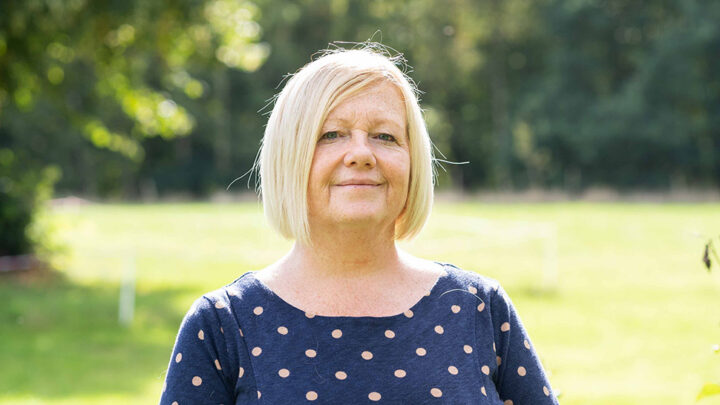Whether the death was recent or many years ago, the lead up to the day and the day itself can be tough, when others may be thinking about celebrating.
Julie Wright, Therapeutic Services Senior Counsellor, is sharing some advice and guidance for those who may be struggling.
How to cope in the lead up
to Mother's Day
How do I support someone
who's grieving this Mother's Day?
What if my children want to celebrate Mother's Day - but I don't?
More advice on coping with grief
this Mother's Day
Let people know how you are feeling about Mother's Day
Anniversaries and celebratory days can be hard for someone who’s experiencing grief. For example, there are cards and gifts in the shops and people are making plans to celebrate. It is difficult and not always possible to avoid these things. But even just talking this through with a family member or friend can be helpful and can help alleviate those fears. In fact, letting people know how you are feeling and what you might need can make a big difference to how you cope.Acknowledge Mother’s Day and its impact on you
- If you know Mother’s Day is likely to be a more challenging day than normal, it’s important to do what feels right for you. You may want to be on your own, being quiet and reflective. Or you may prefer company and to share memories with family or friends.
- Others around you may also be grieving. It’s important to remember that everyone grieves differently and at their own pace. Talking to others might help you negotiate how you manage the day together, according to what you all need and how you all feel. For example, time to be together, and time for space apart if you need it.
Be kind to yourself
- Give yourself permission to put yourself first and be compassionate with your own feelings. It is okay to not be okay. Don’t expect too much of yourself.
- Feelings associated with your bereavement are a natural, normal part of the grieving process and individual to you. It’s okay to allow yourself to feel those emotions.
Remember the person who has died
- Consider what you might like to do to either think about your mum, or celebrate your mum, on Mother’s Day. This might be connected to places that you’ve been or things you’ve done together. Find ways to connect with their memory that feel special to you
- There are many ways to remember your loved one. You could light a candle, plant something in the garden, play some music, write your feelings down in a card, or do something you used to enjoy doing together
- Online tributes can also be a helpful way of reflecting on how much your loved one meant to you. You could post a message or photo on social media, or share a video with family and friends
